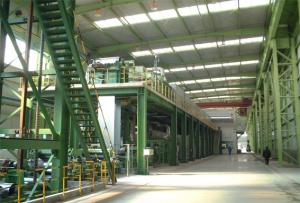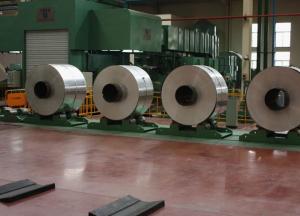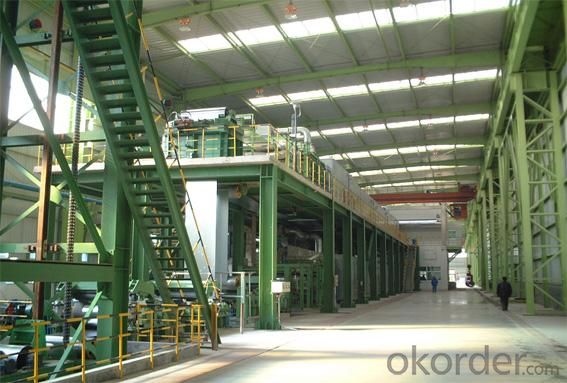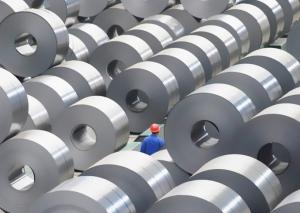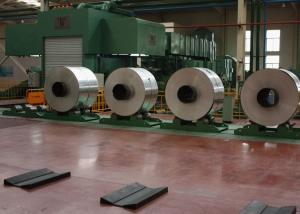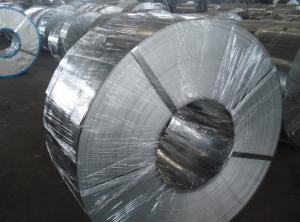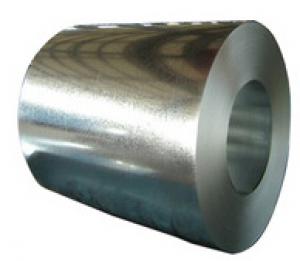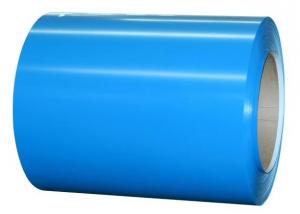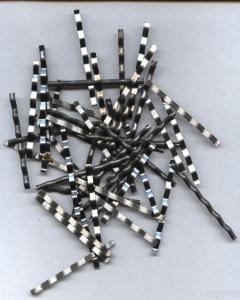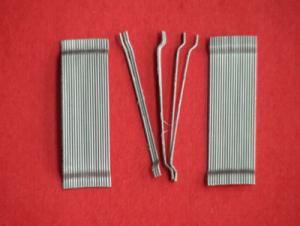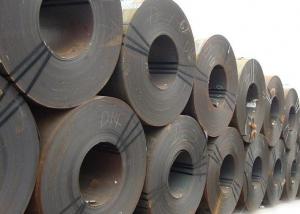Black Anneal Cold Rolled Steel-Matt Finish
- Loading Port:
- China Main Port
- Payment Terms:
- TT or L/C
- Min Order Qty:
- 25M/T m.t.
- Supply Capability:
- 50000 Metric Tons Per Month m.t./month
OKorder Service Pledge
OKorder Financial Service
You Might Also Like
Specifications Of Black Anneal Cold Rolled Steel-Matt Finish
|
COLD ROLLED STEEL | |
|
Thickness |
0.08mm-4.00mm |
|
Width |
30mm-2000mm |
|
Sheets Length |
+0mm-6000mm |
|
Coil inner Diameter |
508mm or 610mm |
|
Surface Treatment |
●Matt Finish/Bright Finish ●Oiling/Dry |
|
Annealing Methods |
●Bright Anneal/Black Anneal |
|
Coil Weight |
1mt-25mt |
Standard and Grade Of Black Anneal Cold Rolled Steel-Matt Finish
|
|
JIS G3141-2005 |
BSEN10130-2006 |
ASTM A1008-12a |
|
Commercial Quality |
SPCC |
DC01 |
CS Types A/B/C |
|
Drawing Quality |
SPCD |
DC03 |
DS Types A/B |
|
Deep Drawing Quality |
SPCE SPCF(non aging) |
DC04 |
DDS |
|
Extra Deep Drawing Quality |
SPCG(non aging) |
DC05/06 |
EDDS |
Definition Of Black Anneal Cold Rolled Steel-Matt Finish
Cold rolling means that hot rolled steel coil is rolled below recrystallization temperature after pickling, and its finished product is full hard coil. After annealing process for full hard coil, the finished product is cold rolled production. The thin gauge cold rolled steel sheet and strip steel have advantages of low surface roughness, high dimension accuracy and good mechanical properties etc, and which have been widely used in auto manufacturing, home appliance, architecture, aviation, precision instrument, hardware and enameling industry etc.
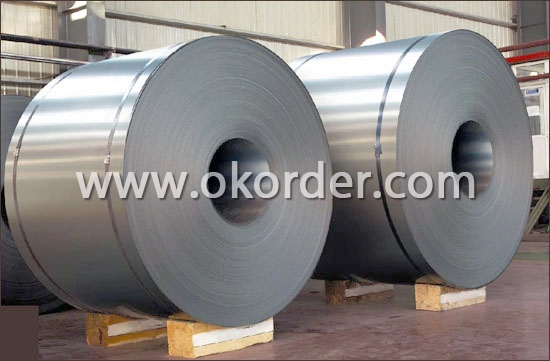
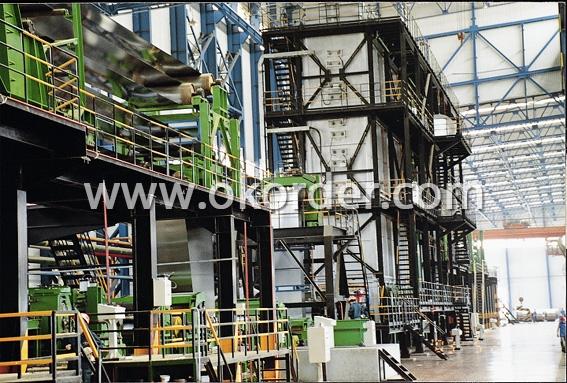
Application Of Black Anneal Cold Rolled Steel-Matt Finish
It is the based material for galvanized steel coil and pre-painted galvanized steel coil. It is widely used in light industry for making tank, furniture, pipe, refrigerators, washers, freezer plate, air conditioner, micro-wave oven, water heater, soot-such machine, electric rice cooker, electric roaster oven, dryers and automobile etc. In the other application industries, it’s mainly used for enameling, office furniture, burglarproof door, electronic element, fastener battery, hardware, automotive fitting etc.
Packaging & Deliver Of Black Anneal Cold Rolled Steel-Matt Finish
The packing of coils consists of anti-damp paper, PVC film, hardboard paper, steel box, strapped with steel strips, fitted with locks and edge protectors and guarantees the optimal condition of the delivered goods. Each coil can be additionally fitted with wooden/steel skids(eye to the side) or wooden pallets(eye to the sky). Eye to sky package: Anti-damp paper inside full wrapped with plastic film, iron sheet outside on wooden pallet in 20 feet container with 25mt.
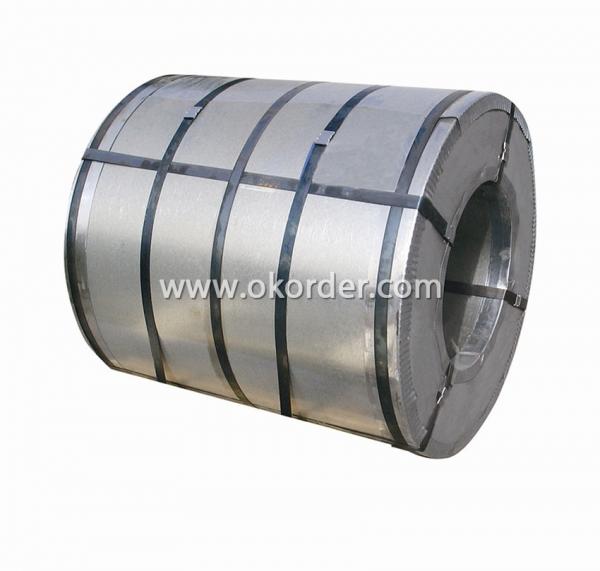
- Q: What are the different types of steel chains and their applications?
- There are several types of steel chains, each designed for specific applications. Some common types include: 1. Grade 30 chains: These chains are general-purpose chains commonly used in applications such as towing, logging, and agriculture. 2. Grade 43 chains: Also known as high-test chains, they have a higher tensile strength and are ideal for heavy-duty applications like load securement and transportation. 3. Grade 70 chains: These chains are specifically designed for transportation and tie-down applications. They have a high strength-to-weight ratio, making them suitable for securing heavy cargo. 4. Grade 80 and Grade 100 chains: These chains are extremely strong and commonly used in lifting and rigging applications. They are capable of withstanding heavy loads and are often used in construction and industrial settings. 5. Stainless steel chains: These chains are corrosion-resistant and ideal for applications where exposure to moisture or chemicals is a concern. They are commonly used in marine environments, food processing, and medical equipment. Each type of steel chain has its own unique properties and applications, so it is essential to choose the appropriate chain based on the specific demands of the task at hand.
- Q: How are steel profiles used in the fabrication of storage racks?
- Steel profiles are commonly used in the fabrication of storage racks due to their strength and durability. These profiles serve as the main structural components, forming the framework for the racks. They are cut, shaped, and welded together to create sturdy shelves and supports, ensuring the racks can withstand the weight of various items being stored. Additionally, steel profiles can be easily customized to accommodate different storage needs, such as adjustable shelving or specialized racks for specific products.
- Q: What are the common welding techniques used for steel?
- The common welding techniques used for steel include shielded metal arc welding (SMAW), gas metal arc welding (GMAW), flux-cored arc welding (FCAW), and gas tungsten arc welding (GTAW).
- Q: What are the properties of heat-resistant steel for high-temperature applications?
- Heat-resistant steel for high-temperature applications has several key properties. Firstly, it has a high melting point, allowing it to withstand extreme temperatures without deforming or melting. Additionally, it exhibits excellent strength and toughness at elevated temperatures, ensuring structural integrity under thermal stress. Moreover, heat-resistant steel possesses good oxidation and corrosion resistance, preventing degradation due to exposure to air or corrosive environments. Furthermore, it has low thermal expansion, reducing the risk of thermal distortion and ensuring dimensional stability. Lastly, it demonstrates good thermal conductivity, facilitating efficient heat transfer and distribution.
- Q: What are the advantages of using steel wire?
- There are several advantages of using steel wire. Firstly, steel wire is incredibly strong and durable, making it suitable for a wide range of applications. It can withstand heavy loads, resist deformation, and maintain its structural integrity over time. Secondly, steel wire has high tensile strength, meaning it can withstand pulling forces without breaking. This makes it ideal for use in industries such as construction, automotive, and manufacturing. Additionally, steel wire is resistant to corrosion, which increases its lifespan and reduces maintenance costs. Lastly, steel wire is flexible and versatile, allowing it to be easily shaped and manipulated for various purposes. Overall, the advantages of using steel wire include its strength, durability, resistance to corrosion, and versatility.
- Q: What are the properties of tool steel for precision cutting tools?
- Tool steel for precision cutting tools typically has several important properties: 1. Hardness: Tool steels used for precision cutting tools are known for their high hardness. This allows the tools to retain their sharp cutting edges, even when subjected to high temperatures and repeated use. 2. Wear resistance: Precision cutting tools are often subjected to abrasive materials and high-speed cutting operations. Tool steels with good wear resistance properties can withstand these conditions and maintain their cutting performance over extended periods. 3. Toughness: While hardness is crucial, tool steels for precision cutting tools also need to have a certain level of toughness. This allows the tools to withstand impacts, shocks, and vibrations without chipping or breaking. 4. Heat resistance: Precision cutting tools can generate significant heat during cutting operations. Tool steels with good heat resistance properties can withstand these high temperatures without losing their hardness or temper. 5. Corrosion resistance: Precision cutting tools may be exposed to various corrosive environments, such as oils, coolants, or moisture. Tool steels with good corrosion resistance properties can prevent rusting and maintain their cutting performance. Overall, tool steels for precision cutting tools need to strike a balance between hardness, wear resistance, toughness, heat resistance, and corrosion resistance to ensure optimal cutting performance and longevity.
- Q: What are the different types of steel scaffolding and support systems available?
- There are several types of steel scaffolding and support systems available, including traditional tube and clamp scaffolding, system scaffolding, frame scaffolding, and mobile scaffolding. Each type has its own advantages and is suited for different applications. Traditional tube and clamp scaffolding is versatile and can be customized to fit any structure, while system scaffolding offers pre-designed components for faster assembly. Frame scaffolding is commonly used in construction projects, and mobile scaffolding is portable and ideal for smaller tasks or maintenance work.
- Q: What are the properties of corrosion-resistant steel for marine applications?
- Corrosion-resistant steel for marine applications has properties that make it highly resistant to rust and degradation in marine environments. These properties include high levels of chromium, which forms a protective oxide layer on the surface of the steel, preventing corrosion. Additionally, the steel is often alloyed with other elements such as nickel and molybdenum to enhance its corrosion resistance. It is also designed to withstand exposure to saltwater, humidity, and harsh weather conditions. This type of steel is crucial in marine applications to ensure durability, longevity, and minimal maintenance requirements.
- Q: How is steel wire used in the production of springs for automobiles?
- Steel wire is commonly used in the production of springs for automobiles due to its high strength and durability. It is typically formed into coil shapes to create suspension springs, ensuring a smooth and stable ride. Additionally, steel wire is utilized in the manufacturing of valve springs, clutch springs, and seat springs, providing the necessary flexibility and resilience required for these automotive components.
- Q: What are the different types of steel angles and channels available?
- There are several types of steel angles and channels available, including equal angle, unequal angle, L-shaped angle, C-shaped channel, and U-shaped channel.
1. Manufacturer Overview
| Location | Hebei, China |
| Year Established | 1999 |
| Annual Output Value | |
| Main Markets | Africa Eastern Europe Southeast Asia Eastern Europe;North America |
| Company Certifications | ISO9001 GBT28001 ISO14001 |
2. Manufacturer Certificates
| a) Certification Name | |
| Range | |
| Reference | |
| Validity Period |
3. Manufacturer Capability
| a) Trade Capacity | |
| Nearest Port | Tianjin; Qingdao |
| Export Percentage | 41% |
| No.of Employees in Trade Department | 20 People |
| Language Spoken: | English; Chinese |
| b) Factory Information | |
| Factory Size: | 198000square meters |
| No. of Production Lines | 5 |
| Contract Manufacturing | OEM Service Offered |
| Product Price Range | Average |
Send your message to us
Black Anneal Cold Rolled Steel-Matt Finish
- Loading Port:
- China Main Port
- Payment Terms:
- TT or L/C
- Min Order Qty:
- 25M/T m.t.
- Supply Capability:
- 50000 Metric Tons Per Month m.t./month
OKorder Service Pledge
OKorder Financial Service
Similar products
Hot products
Hot Searches
Related keywords
